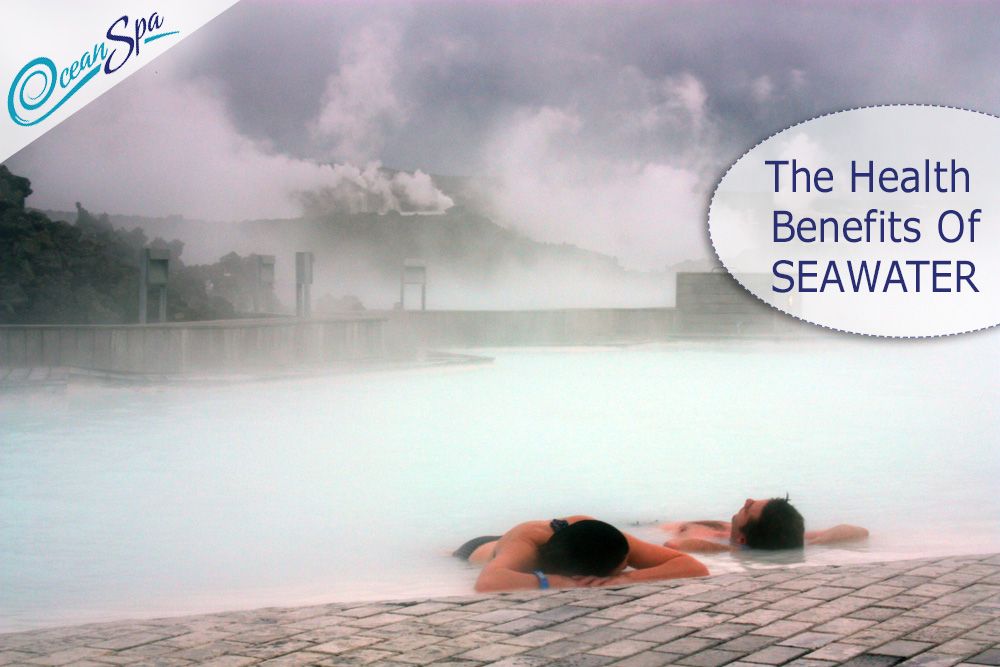
The sea has long been a popular destination for people seeking to treat different conditions and for convalescent patients. We take a look at the evidence of its therapeutic benefits.
In the 19th century England, seawater baths gained popularity as an unconventional convalescence treatment for a variety of ailments, ranging from depression to respiratory diseases. Patients were told to spend time by the sea or to get into tubs filled with seawater to help them get back to health.
The history of using seawater in medicine goes back much longer, however. There is evidence, for example, that the Ancient Egyptians used it in the treatment of severe wounds and burns. To this day, the amount of scientific literature on the subject remains quantitatively significant, but the quality of the evidence with regard to sea water’s therapeutic benefits varies widely. Most of the research has focused on its impact on skin conditions and mental health.
Seawater and skin conditions
For many years, anecdotes of people with psoriasis finding relief from spending time in salt baths or more generally, in mineral-rich water, have been reported. The Dead Sea, in particular, is known for its high concentrations of magnesium and has been a popular destination for those who want to try an alternative treatment route to help manage their skin condition.
This has to some extent been supported by research. A study published in the Journal of the American Academy of Dermatology showed that patients with chronic, stable, plaque-type psoriasis benefited from spending time at the Dead Sea, taking sea baths and getting sun exposure, which led to remission periods lasting more than three months on average. These results were then backed up by subsequent and more recent studies, although none clarified which components of seawater, if any, had this impact.
“Any improvement seen after swimming in the sea could be explained by exposure to UVB rays from the sun as this can improve skin conditions, such as psoriasis,” dermatologist Dr Sweta Rai, of the British Association of Dermatologists, points out.
The evidence regarding the impact of seawater on skin conditions such as eczema is even less clear. A large review zoomed in on different trials of seawater therapy and found that eczema patients’ responses to seawater and to salt baths, in general, were highly variable.
“Research around the benefits of seawater on inflammatory skin conditions is very limited. There is some evidence to suggest that water from the Dead Sea could help to improve eczema flares; however, most evidence is anecdotal,” Rai explains.
It’s also likely that it’s not just seawater per se that is having an impact. It might be that being in a new environment, with a different climate, by the beach, is what helps some patients.
“I wouldn’t recommend swimming in the sea as a way for patients to treat their skin condition, as the evidence just isn’t there currently. The mainstay of treatment for eczema and psoriasis includes topical therapies and biologics in the case of psoriasis,” says Rai.
Improving your mental health
Mental health is another important area where scientists have been active to study the effects of swimming in the sea. This kind of research has grown in popularity in recent years, in particular, thanks to the launch of BlueHealth, a pan-European research initiative investigating the links between environment, climate and health. In particular, scientists in the programme look at how the sea and other water-based environments can affect well-being.
There is ample evidence to suggest that physical exercise is very beneficial for mental health, in particular, to control stress and anxiety, partly because it promotes the release of endorphins (the ‘feelgood’ hormones).
This, according to research, seems to be even more the case for people who exercise in natural, outdoor environments, including the ocean.
“Outdoor exercise, such as swimming in the sea, can be particularly beneficial and some research suggests that outdoor exercise like this can be as effective as antidepressants in treating mild to moderate depression. Exercise also reduces levels of cortisol, the ‘stress hormone’, which has been linked to a range of mental health problems, including depression and anxiety,” Stephen Buckley, head of information at Mind, the mental health charity, explained.
However, swimming in the sea might also help mental health via other mechanisms. When we are swimming, our breathing patterns change and this may lead to a more relaxed state.
Tips to enjoy the sea's benefits
Protect yourself
Don’t forget that sea usually means sun, and both sun and sea bathing have been linked to improvements for the skin. But get good sunscreen too. “It’s important that people ensure they stay protected whilst out in the sun, due to the potential risk of developing skin cancer,” Rai says.
Don’t stop taking your meds
Even if you decide swimming in the sea does help you, do not discontinue the other treatments you are taking. If you have concerns and want to change anything in your treatment plan, speak with your doctors first, to get their advice.
Find an activity you enjoy
Choose the physical activity that works for you.
“While swimming in the sea brings benefits for mental well-being for many people, the most important thing is to find a type of physical activity you enjoy and can do regularly. An outdoor swimming group or other team activity might be best for you if you find being sociable gives you a boost, while for others who benefit from time to yourself, an activity like running might work better,” Buckley says.







